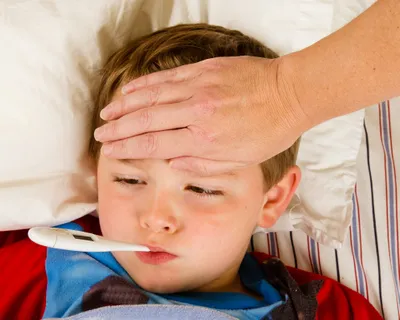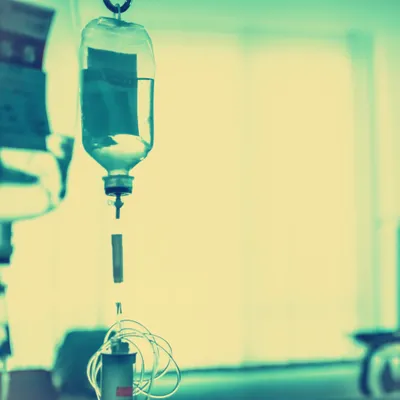Each and every one of us has had the flu at some point in our lives. The sniffles, a nagging cough, sore throat, and fever may send you to bed for a few days, but have you ever wondered when it’s time to seek the help of a doctor or walk in clinic, or if your symptoms require a trip to the emergency room (ER)?
Depending on your age and health, flu symptoms can gradually escalate and even be dangerous to your health. Here’s how to know when your illness requires professional medical attention…
1. Progressive Illnesses
According to the journal Mayo Clinic Proceedings, we often categorize our illnesses—the flu to pneumonia—based on the symptoms. For instance, while a common flu might have you taking over-the-counter meds and cancelling your work and social plans for a few days, more serious symptoms from pneumonia (i.e., high fever, chills, and shortness of breath) might cause you to make an appointment with your doctor ASAP.
However, doctors at the Mayo Clinic remind us that even the flu can progress into a very dangerous situation. And those more serious complications (i.e., a serious infection or sepsis) can require emergency medical attention—stat—as symptoms progress!
2. Go to the Doctor…
Now healthy individuals without another health or chronic condition may recover from a typical bout of the flu within a few days. Sure, they may experience nasal and chest congestion, achy muscles, the chills, and a sore throat, but if those symptoms gradually improve, it may not have them even considering a trip to the doctor.
However, experts from the Asthma and Allergy Foundation of America remind us that the same symptoms experienced by individuals over the age of 65-years or who suffer with a chronic illness, may not improve in a few days time—in fact, they may worsen. If your immune system is compromised you should seek medical care from your general practitioner in the early stages of illness.
3. Go to Urgent Care…
The same goes for patients who suffer with asthma, according to the American Family Physician. Progressive flu symptoms—including breathing difficulties, wheezing, high fever, chest pain, cough with blood, and shortness of breath—should be considered serious and urgent.
Those who already suffer from chronic respiratory issues (i.e., asthma) are more prone to the flu taking a sudden turn to acute pneumonia and bronchitis, which can result in associated heart, nerve, and muscle damage.
4. Dangers of Sepsis
Most of us will not associate a serious condition, like sepsis, with an innocent bout of the flu. This is because healthy folks with strong immune systems can typically fight off the flu before it turns into a more serious situation.
However, according to Yahoo Health, sepsis can occurs in roughly 30-percent of cases when the patient is elderly or has compromised immunity. As the body tries to fight off an infection, the resulting inflammation, fever, and increased white blood cell count can cause sepsis and jeopardize the kidneys, lungs, and liver, and even cause fatality. A soaring fever of 100-degrees Fahrenheit, shortness of breath, confusion, dizziness, and the inability to keep down fluids are indications of sepsis and demand immediate medical attention.
5. Go to the ER…
Developing sepsis from the common flu will happen in mere hours to days. Along with a soaring fever and inability to keep down fluids, the Mayo Clinic points to extreme fatigue, lightheadedness, wheezing or shortness of breath, as well as organ dysfunction indicate a sepsis infection.
Seek emergency medical attention immediately if organs such as the lungs, liver, or kidneys appear compromised. For instance, breathing issues and absence of urination can indicate lung, liver, or kidney damage, shock, or failure.
6. Diagnosing Septic Shock
Research from the Mayo Clinic indicates that hospital and emergency staff can quickly determine sepsis very quickly in high risk patients with a simple blood sample. High-risk individuals are considered those with chronic lung and heart disease, as well as diabetes.
If advancing sepsis is diagnosed, the patient will be immediately put on IV to get fluids into the system. Antibiotics will be required if sepsis is in advance stages. Early identification and treatment with fluids is imperative.








